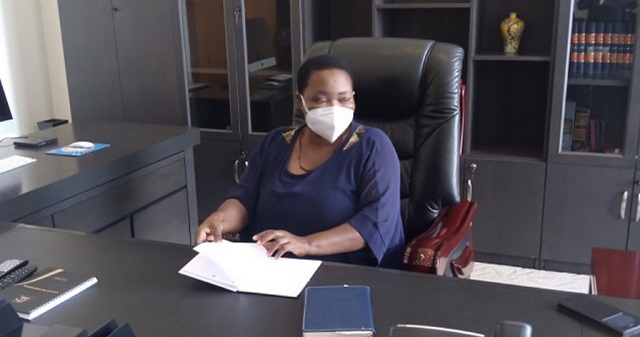
Anti-corruption crusade
Nabbanja said she wants to be directly involved in delivering services to the people to avoid cases of money swindling.
It is difficult to imagine how either Rugunda or Mbabazi would have handled the Hamis Kigunddu Shs530 million COVID-relief brought to their office in cash. Possibly they would have left the nitty-gritty of counting it, securing it, and banking it to their technocrats and waited for reports.
Instead, when on Friday July 02, Nabbanja revealed her determination to avoid money being swindled. When the publicity hungry city businessman, Hamis Kiggundu popularly known as Ham, donated Shs530 million to the country’s COVID19 fight, Nabbanja was on hand personally.
After the photo-op, in which Ham handed a bundle of crisp Shs10, 000 notes that looked-liked wrapped packets of biscuits, he apparently made an unusual revelation. According to media reports, Ham said although he had publicly handed over the money, in reality he had created an account to which the money should go. Secondly, he appeared to want to spearhead a campaign of collecting money from other private sector players. He reportedly said all money would go on the account he had created. He suggested that a member of the national COVID-19 Task Force could be a co-signatory on the account. He reportedly named Dr Monica Musenero, the Minister in-charge of Science, Technology and Innovation in the Office of the President.
But according to reports, Ham had not factored in Nabbanja’s street smarts and no-nonsense style of work.
She immediately shot-down Ham’s plan.
“Ministers are not allowed to be signatory to those accounts,” Nabbanja told him.
She instead ordered that the money go directly to an account earlier opened up by government as directed by President Museveni.
When hours later she learnt that the money had not been banked and was lying around in her office building she was furious. Dismissing claims by her staff that the money could not be banked because it was passed banking hours, she called the bank manager. After setting up an arrangement, she personally drove to the bank with the money.
Just days after Nabbanja was appointed and pundits were busy babbling about her supposed unfitness for office – possibly because to them she does not have the right inner-circle entitlement credentials, many people who have previously known her spoke out for her.
“Make no mistake the choice of Hon. Nabbanja as Premier is no joke,” said former Aruu County MP, Odonga Otto, in a widely circulated Tweet, “Acting more often as a ‘semi-literate village belle,’ Hon. Nabbanja is a woman of action, she will even remove food from a minister’s mouth if one is eating during work hours.”
Nabbanja also has sought to reassure the country, that she is qualified and has the skills to lead. She points at her previous job as a minister in Museveni’s government and before that as a back-bencher MP, she was appointed Commissioner of Parliament. She was also an RDC, who is the political head of a district, for around 10 years.
“That is enough experience for someone to be a good leader,” she says.
Museveni has said he appointed Nabbanja because of four things: “She is very committed, hardworking, very active mobiliser and anti-corruption crusader.”
“She is very straight forward,” Museveni said.
But perhaps the most touching endorsement of Nabbanja was from her colleague in cabinet, Peter Ogwang, the Minister of State for Economic Monitoring, in an Op-ed published by Daily Monitor.
“For some of us who have had an opportunity to know and work with Ms Nabbanja, we can authoritatively affirm that the Prime Minister is a well-grounded and result oriented leader,” he said.
“She identifies a problem and gives a solution,” Ogwang said.
He described how Nabbanja would sometimes use her parliamentary position to mobilise communities and fuel graders to work on bad roads in her constituency.
“That was when she was nicknamed “Majegere,” Ogwang said the local name for the heavy earth-moving bulldozers.
He described how Nabbanja transformed the audit function of the administrative body of parliament, the Parliamentary Commission.
“She transformed the commission for the best and her legacy has left a robust audit system in Parliament,” he said.
Ogwang described how under Nabbanja, the audit committee made unearthed irregularities on public funds which prompted the commission to take harsh actions against the officials who were not following strict financial management policies.
In one case, Ogwang said, she forced MPs and Parliament staff to refund monies taken as travel allowances for trips that they did not take.
“So there is no doubt that the country has got a capable Prime Minister who has risen from a humble background, and is knowledgeable about underlying challenges of the local person,” Ogwang said.
****
 The Independent Uganda: You get the Truth we Pay the Price
The Independent Uganda: You get the Truth we Pay the Price





